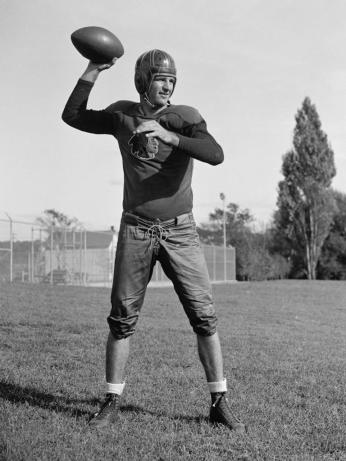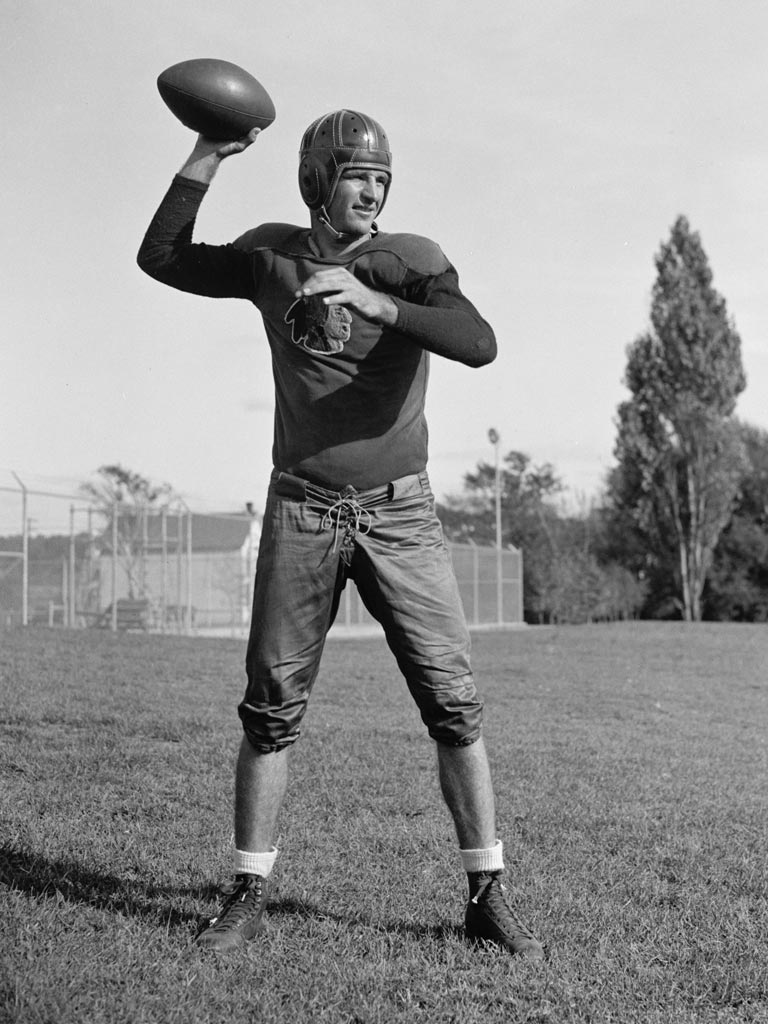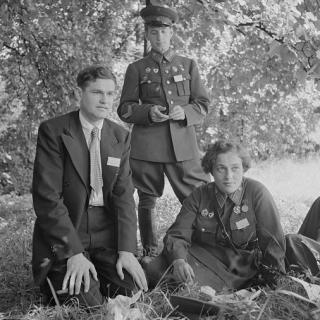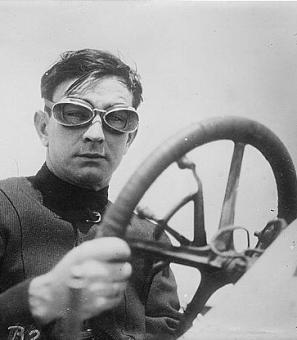Pearl Harbor at Griffith Stadium
December 7, 1941 was a breezy, sun-filled day in Washington, D.C. 27,102 fans packed Griffith Stadium to see if the Redskins could knock off the visiting Philadelphia Eagles and squeak into the playoffs.[1]
About the time the game kicked off at 2 pm local time, events that would change the world were happening 5,000 miles away. Japanese fighter planes attacked the United States from the skies over Pearl Harbor, Hawaii. 2,403 Americans were killed and another 1,178 were wounded. Eighteen ships were sunk or run aground, including five battleships. America was at war.
News reached Washington via telegraph and Redskins management learned of the attack. But, in an age before smartphones, the fans in the stands were oblivious – at least initially. Soon, however, “there was a hint of something of importance in the air.”[2] The public address announcer began paging newspaper reporters and columnists. (Not a usual happening at a football game.) Then came the calls for military personnel.
“Admiral W.H.P. Bland is asked to report to his office at once!”
“Joseph Umglumph of the Federal Bureau of Investigation is requested to report to the FBI office at once!”
“Capt. H.X. Fenn of the United States Army is asked to report to his offices at once!”[3]
Similar missives interrupted game action for the rest of the afternoon. As Washington Post columnist Shirley Povich described it, “Somehow, with America at war and lives already lost, a football game had lost its importance.”[4]
That was undoubtedly true... for everyone outside of Griffith Stadium. But on the inside, most people didn’t know anything about the attack because the team declined to make an official announcement.
General manager Jack Epsey told The Washington Post later that the Redskins were aware of the situation in Pearl Harbor early in the game but didn’t want to “contribute to any hysteria,” perhaps because a mass exodus would make the stadium unsafe for fans. Ever the showman, team owner George Preston Marshall was more blunt:
I didn’t want to divert the fans’ attention from the game.”[5]
Despite the decision, whispers of the attack soon moved through the crowd. Some fans heard chatter emanating from inside the press box. Others got word from outside the stadium. At least one housewife who had been listening to the Pearl Harbor news on the radio telegraphed Griffith Stadium and requested that a message be delivered to her husband in the grandstand.
“Deliver to Section P, Top Row, Seat 27, opposite 25-yard line, East Side, Griffith Stadium: War with Japan Get to office.”[6]
For the fans who stayed in their seats and watched Sammy Baugh lead the Redskins to an exciting 20-14 win, their football-induced exuberance was short-lived. “At the exits to the stadium at the finish…. the news of war broke like a thunderclap,” Povich wrote.[7]
The next day, The Evening Star struggled to make sense of the Redskins’ decision to keep the news from their fans. Beneath the headline, “It Could Only Happen in Washington,” Star correspondent Francis Stan summed it up like this:
“For the first time since 1917, the United States was at war. Millions gathered in their homes, or at work, heard the dramatically brief news flashes of the Japanese bombings of Pearl Harbor and other American possessions. But at Griffith Stadium, the 20,000-odd spectators weren’t told. Instead, they could only guess and, as a study in mass psychology with its rich, ripe overtones, it was epic-making.”[8]
Epic-making, indeed.
Footnotes
- ^ As with a lot of Redskins seasons, they would need some help to make the playoffs. In addition to a Redskins win, the Brooklyn Dodgers (yes, a football team) would have to lose. At stake for the players was a $100 playoff bonus.
- ^ Povich, Shirley, “War’s Outbreak is Deep Secret to 27,102 Redskin Game Fans,” The Washington Post, 8 Dec 1941: 24.
- ^ Povich, Shirley, “War’s Outbreak is Deep Secret to 27,102 Redskin Game Fans,” The Washington Post, 8 Dec 1941: 24.
- ^ Povich, Shirley, “War’s Outbreak is Deep Secret to 27,102 Redskin Game Fans,” The Washington Post, 8 Dec 1941: 24.
- ^ Richmann, Mike, “Flashback: Forgotten Redskins-Eagles Game,” Redskins.com website. Accessed 7 Dec 2016.
- ^ Povich, Shirley, “War’s Outbreak is Deep Secret to 27,102 Redskin Game Fans,” The Washington Post, 8 Dec 1941: 24.
- ^ Povich, Shirley, “War’s Outbreak is Deep Secret to 27,102 Redskin Game Fans,” The Washington Post, 8 Dec 1941: 24.
- ^ Stan, Francis E., “Win, Lose or Draw,” The Evening Star, 8 Dec 1941: A-16.






![Small Arms Practice Six OSS recruits watch an instructor shoot a small arm during training at Chopawamsic's Area C. [Source: National Park Service]](/sites/default/files/styles/crop_320x320/public/2A8CB9F8-1DD8-B71C-070E22100840145DOriginal.jpg?itok=xboGo_08)
![Sketch of the mythical fuan by Pearson Scott Foresman. [Source: Wikipedia]](/sites/default/files/styles/crop_320x320/public/2023-10/Goatman_Wikipedia_Faun_2_%28PSF%29.png?h=64a074ff&itok=C9Qh-PE1)












